A skull found in a cardboard box at the University of Cambridge could completely upend prior notions about when humans first began attempting to treat cancer.
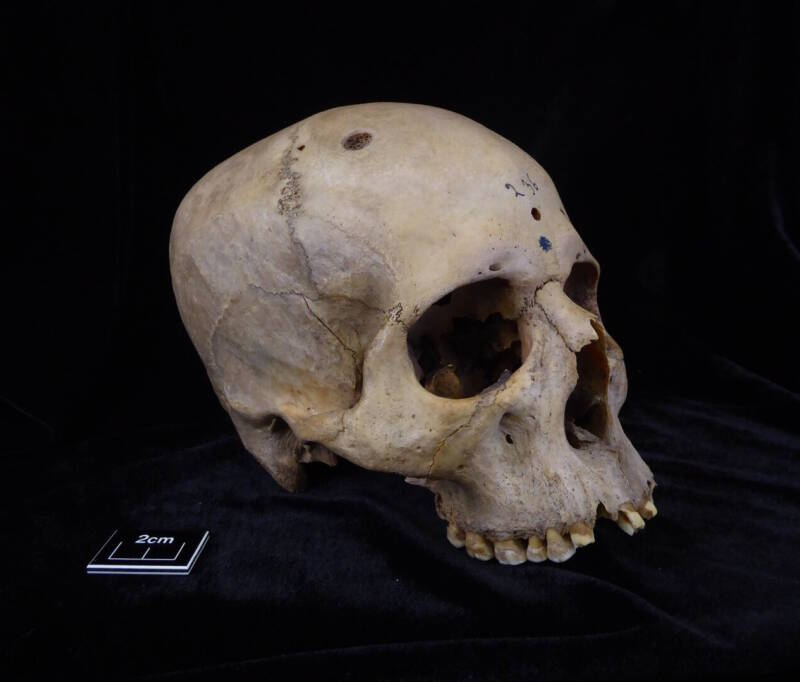
Tondini, Isidro, Camarós, 2024The ancient Egyptian skull, dating back 4,600 years, with possible signs of brain cancer surgery.
Around 4,600 years ago, an ancient Egyptian man likely underwent surgery to remove brain tumors. With the recent rediscovery of his skull in the University of Cambridge’s Duckworth Collection, researchers have identified his case as what could be the oldest example of surgical treatment for cancer ever found.
Under a microscope, the skull showed a tumor surrounded by cuts made by a metal tool believed to be a physician’s implement. Similar examples of this kind of ancient surgery exist, but this skull predates them by more than 1,000 years.
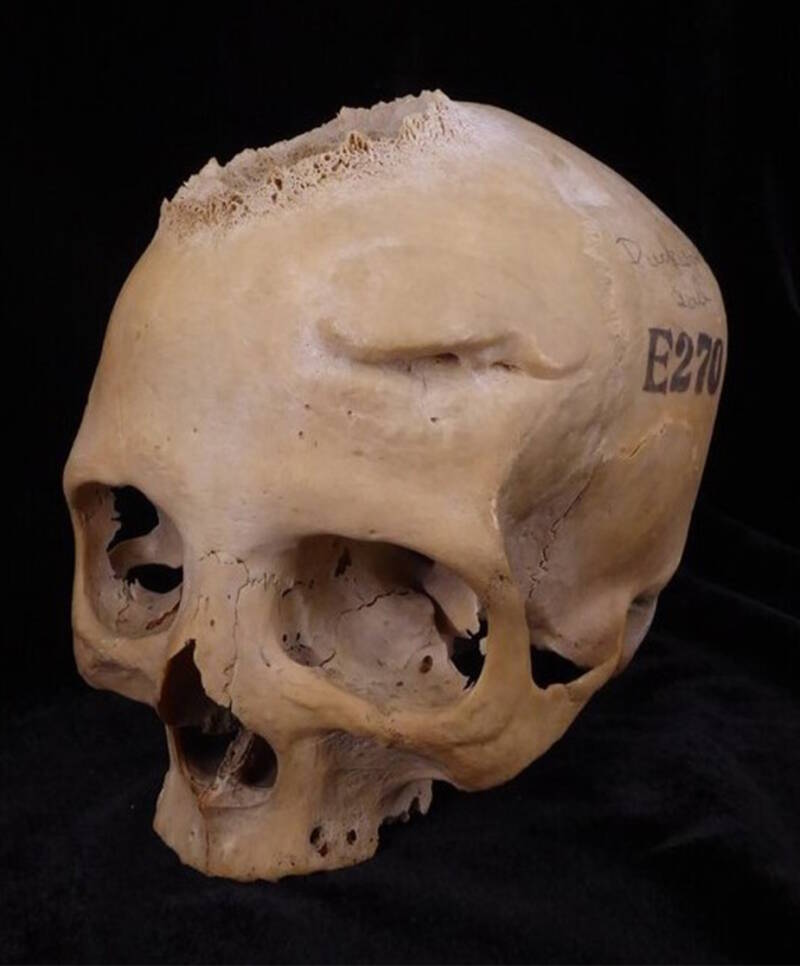
Tondini, Isidro, Camarós, 2024The skulls were found in 2022, when a Spanish archaeologist came across a cardboard box at the University of Cambridge with “cancer?” written on it.
Researchers Make A Remarkable Discovery On An Ancient Egyptian Skull
Researcher Edgard Camarós, a paleopathologist at the University of Santiago de Compostela in Spain, was studying a 4,000-year-old Egyptian skull when he stumbled upon something strange.
On the top of the skull, Camarós and his team found a tumor surrounded by small cut marks. Researchers cannot confirm whether these cuts were sustained before death as part of a surgery or after death as part of an autopsy.
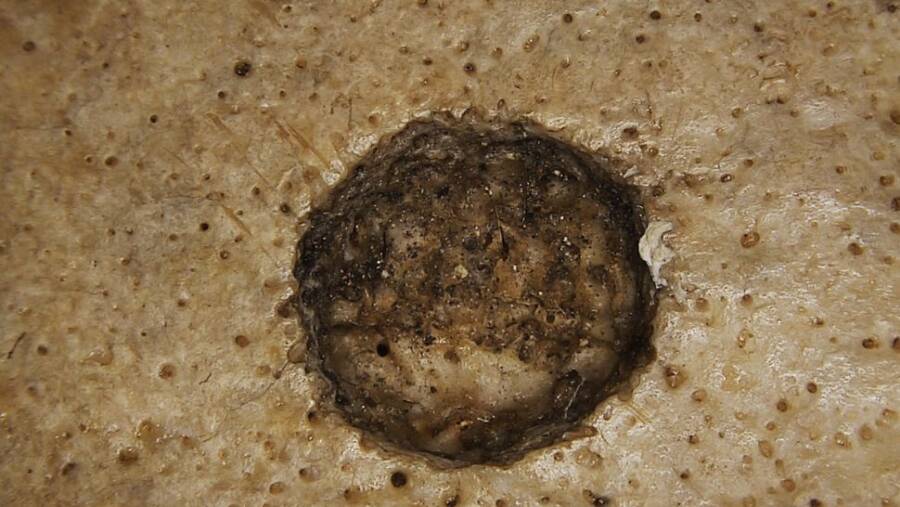
Tondini, Isidro, Camarós, 2024Closeup of the tumor found on the 4,600-year-old skull.
“There was an uncomfortable silence in the room, because we knew what we had just discovered,” Dr. Camarós told The New York Times.
Under a microscope, Camarós and his team discovered dozens of lesions on the skull made with a metal tool. Immediately, the team realized they were looking at the oldest evidence of brain cancer ever found and proof that ancient Egyptians attempted to treat the condition.
“What we found is the first evidence of a surgical intervention directly related to cancer,” Edgard Camarós Perez, study co-author and a paleopathologist at the University of Santiago de Compostela in Spain, told Live Science. “This is where modern medicine starts.”
The Dawn Of Modern Medicine In Ancient Egypt
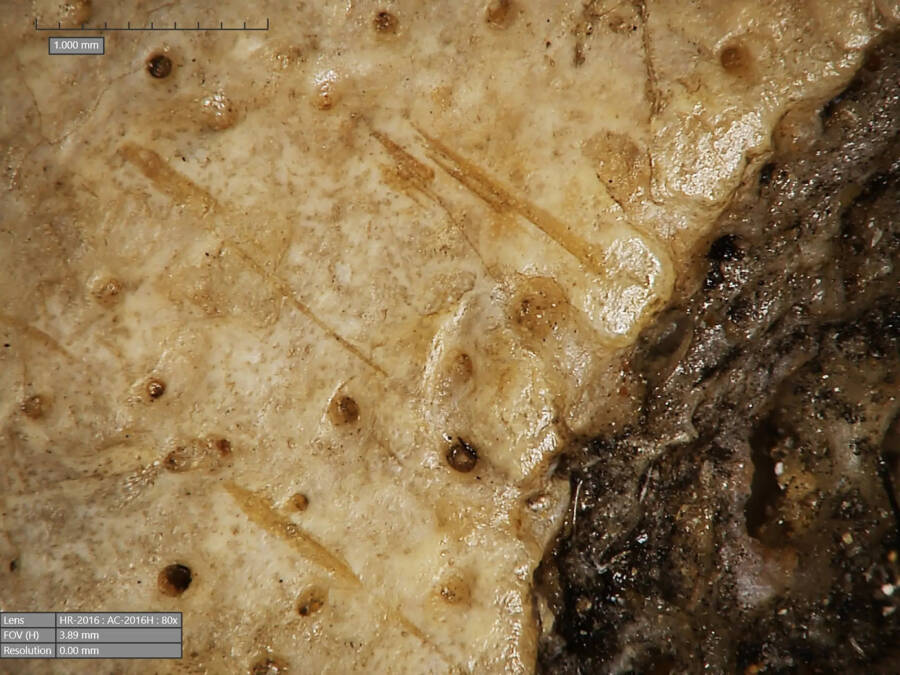
Tondini, Isidro, Camarós, 2024Closeup of the cut marks near the tumor.
The researchers published their findings in the Frontiers in Medicine journal. According to this study, the skull represents a complete rewrite of the start of modern medicine.
The study posits that cancer was a “frontier” for ancient Egyptians. Anthropological evidence shows that they attempted to treat the condition, but failed to do so successfully.
According to the so-called Edwin Smith Papyrus from Egypt dating back to circa 1600 B.C.E., cancer was common enough to warrant medical discussion, though Egyptians knew it only as a “grave disease” with “no treatment.”
This new finding pushes the first evidence of cancer surgery back almost 1,000 years.
“Cancer is as old as time,” Dr. Camarós told The New York Times. “Even dinosaurs suffered from cancer.”
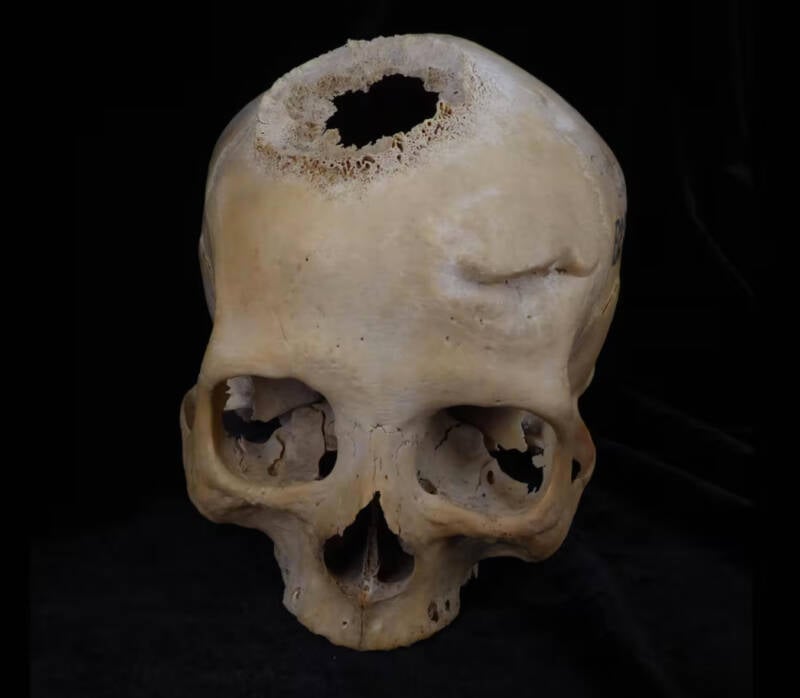
Tondini, Isidro, Camarós, 2024As one co-author of the new study Edgard Camarós Perez said, “This is where modern medicine starts.”
“[This] can also remind us that cancer is not a modern disease,” Dr. Kirkpatrick, a bioarchaeologist and a postdoctoral researcher at the Max Planck Institute for Evolutionary Anthropology in Germany, told The New York Times. “Which might help to relieve some guilt in those currently affected by cancer who are concerned about the role that their lifestyle played in its development.”
In the future, researchers are hoping to discover even older examples of how ancient humans understood and attempted to treat cancer.
“If we know that more than 4,000 years ago, ancient Egyptians were trying to understand cancer at a surgical level, we are absolutely convinced that this is just the beginning of something that started many, many thousands of years ago,” Dr. Camarós stated.
For more shocking technological advancements from ancient Egypt, read up on how the Pyramids were built and who built the Pyramids.





